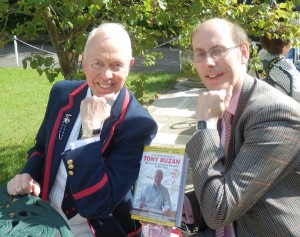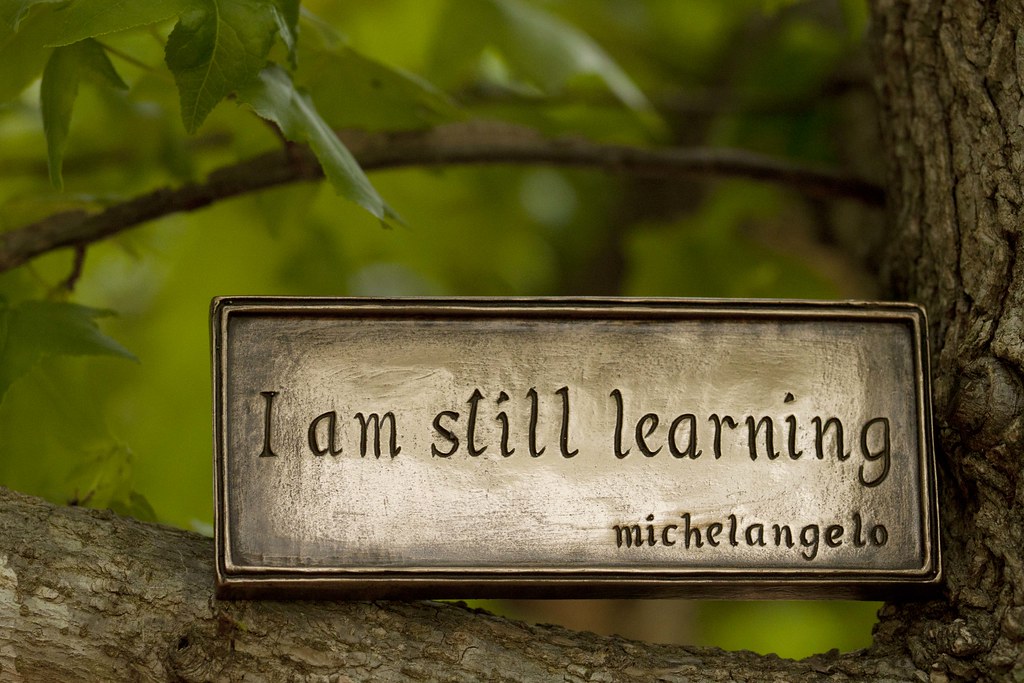Sat, 26 July 2014
In this very candid interview with polyglot Olly Richards, we’re getting a look behind the scenes into the workings of one of the hardest working, most effective and interesting language learners on the scene. Tune in now and you’ll learn: * The difference between the desire to communicate and the desire to learn a language and how bringing these two distinct quests together can give your study efforts a boost. * Why consuming a lot of information will not enable you to suddenly speak the language. * Why even self-directed learners will need to use some of the same techniques used in traditional language-learning classrooms. * How to escape the prison of blaming grammar for your language learning troubles and what to focus on instead. * Why “context is king” in language learning. * Why perfectionism is your worst enemy and how to overcome it. * The relationships between learning languages and learning music. * Why studying jazz enabled him to be able to hear the auditory elements of the languages he has learned at a deeper level and react quickly in his mind even at the early stages in order to create * How to know if the particular language aspects you’re studying have a “high surrender value” so that you’re spending your time in the right areas that will serve you the most over the short and long term. * Exactly when (and why) Olly resorts to mnemonic devices instead of relying on spaced-repetition alone. * The importance of knowing when to stop forcing a learning step and how to come back to it later with a more receptive mind. * What Olly does to break the monotony of flash cards and get started using the new language he’s studying (this technique may surprise you!) * The amazing benefits of incorporating Excel files into your language learning. Check out Olly’s amazing video about this below. * An in-depth analysis of what the term “language hack” means and how best to use this concept to approach your language learning efforts. * How to focus on your methods in order to focus better on the content of the language. * The “language mediation” phenomenon in which people in your target language will make it easier for you to converse with them instead of launching into idioms and expressions that won’t make any sense (just one of many reasons why you should never fear just getting out there and speaking). * Olly’s fascinating definition of “fluency” (one of the most powerful we’ve ever heard on the Magnetic Memory Method Podcast in addition to what we’ve heard from Luca Lampariello and David Mansaray). * Olly’s personal feelings about losing a particular level of fluency in a language, but why there is never any reason you can never go back and achieve even greater heights if you treat learning multiple languages as a revolving door. * … and much, much more. Further Resources Olly’s “Remote Learning” Guest Post on Benny Lewis’ Fluent in 3 Months. Olly’s I Will Teach You A Language YouTube Channel Olly’s “Learn Kanji the Smart Way” Olly on the Actual Fluency Podcast Olly on how you can learn to speak Thai YouTube documentary on Olly by Jan Van Deraa: Olly’s video on using Excel as part of your language learning:
The post Olly Richards Talks About Language Tech And Real Communication appeared first on Magnetic Memory Method - How to Memorize With A Memory Palace.
Direct download: Olly_Richards_Talks_About_Language_Tech_And_Real_Communication.mp3
Category:Podcast -- posted at: 10:09am EDT |
Mon, 21 July 2014
In today’s episode of the Magnetic Memory Method Podcast, Kerstin Hammes talks about the real meanings of fluency and memory. Kerstin provides us with a number of fresh perspectives on what is really involved in learning a language and is a very inspiring figure in the language learning world. Tune in now to learn: * Exactly what it feels like to know multiple languages. * How learning a language can be just like putting up a little shelf to place books on. * Kerstin’s thoughts on the one-upmanship in the polyglot community and why it is often more destructive than it is useful. * Why language learning is sometimes like entering an discouraging gym ad how to overcome some of the more prominent challenges. * Why “fluency” is a funny word and not something one should really aim for because it is a mostly “meaningless” goal – and what you should be shooting for instead. * Exactly where the title of Benny Lewis’ title “Fluent In 3 Months” come from and why it isn’t sales pitch flim flam. * The various personality aspects that can create barriers to your language learning experience and how to overcome them. * Why spaced repetition learning software most likely cannot teach you a language. * “Vocabulary curation” and how to maximize your efforts in gathering the most useful and important words quickly. * How to play “Sherlock Holmes” while learning a language and use other people to effectively speed up your learning process. * Why most of the problems people face with language learning really have nothing to do with the languages themselves. * The relationship between time signatures and culture and how the way we learn our culture effects our ability to understand others at a deep level. * Why language learners need a structure to follow and usually do not benefit from “random acts of learning” like watching foreign language films from time to time. * Why Kerstin finds mnemonics helpful and why they are one of the best ways to experience contextualized learning (as opposed to decontextualized learning and semi-contextualized learning). * Why leaving stickers around the house to the label your furniture with what these items are called in your target language is a kind of Memory Palace and how Kerstin uses the physical layout of the objects in her home to “see” words she wants to recall in her mind. * Why Kerstin finds spelling to be a “visual” aid to recalling vocabulary. * Why Bon Jovi might be the best way to learn English in context because they are a “piece of reality.” * The specific benefits of blogging about your language learning experiences. * The relationship between memorizing names and foreign language vocabulary and how the stems and origins of words can help you draw connections between your mother tongue and the target language. * Why grammar is more like a map, rather than a set of rules. * The four skills you need to achieve language competency and how they will build your confidence and move towards greater fluency. * … and much, much more! Further Resources: Interview with Kerstin Hammes on Language Boat Books by Kerstin Hammes Post by Kerstin Hammes on the question of “hard languages” and “easy languages” Kerstin Hammes on Twitter Creative Language Learning Podcast by Kerstin Hammes How To Stop Information Pollution From Poisoning Your Memory Kerstin’s amazing French Grammar course on Udemy About the author: Anthony Metivier is the founder of the Magnetic Memory Method, a systematic, 21st Century approach to memorizing foreign language vocabulary, dreams, names, music, poetry and much more in ways that are easy, elegant, effective and fun. The post Kerstin Hammes Talks About The Real Meanings Of Fluency And Memory appeared first on Magnetic Memory Method - How to Memorize With A Memory Palace.
Direct download: Kerstin_Hammes_Talks_About_The_Real_Meanings_of_Fluency_And_Memory.mp3
Category:Podcast -- posted at: 11:00am EDT |
Sun, 13 July 2014
* Exactly how and why games like Memneon and Rubik’s Cube involve memory. * The role of pattern recognition, how this relates to memory as well as to the controversial concept of right and left brain cognition processes. * How the London Tube map and Scrabble relate to the complexity of location-based memory strategies. * The relationship between gaming, memory and education. * Why you can learn from games even if the specific objective of a particular game itself is not focused on education you about something, (i.e. like Minecraft). * The potential dangers of a world in which the raison d’etre of learning has become completely tied to gaming. * Why the actor, polyglot and author Stephen Fry went “delightfully dotty” after playing Stephen Turnbull’s Memneon game. * The relationship between the spatial-location memory challenges of Memneon, chess and the World Memory Championships in terms of high-value memory training and memory drills. * How Bubblingo (currently in development) will use interactive, tagged video to help you learn a language. * The different metaphors that have been used to describe memory and how the brain does and doesn’t function like a computer when it comes to concepts like neuroplasticity. * How memory champions are working to use a Memory Palace and other mnemonic strategies to give them a competitive edge on the game. * … and much, much more. As the CEO of Alchemista, Stephen Turnbull has demonstrated with Memneon that something as simple as an idea can truly be turned into gold. His background in Media Studies and Teacher Training, back by a history in making short films has enabled him to combine logistical creativity with a strong visual game that brings a riveting user experience together with learning. Have a look at the Memneon game here in this great YouTube video: Further resources and reading: Minecraft homepage – and for more on the use of Minecraft in memory work, be sure to check out the previous Magnetic Memory Method Podcast episode, Tap the Mind of a Ten Year Old Memory Palace Master. About the author: Anthony Metivier is the founder of the Magnetic Memory Method, a systematic, 21st Century approach to memorizing foreign language vocabulary, dreams, names, music, poetry and much more in ways that are easy, elegant, effective and fun. The post Memneon Creator Stephen Turnbull Talks About the Metaphors Of Memory appeared first on Magnetic Memory Method - How to Memorize With A Memory Palace.
Direct download: Memneon_Creator_Stephen_Turnbull_Talks_About_the_Metaphors_of_Memory.mp3
Category:Memory Method Tips -- posted at: 4:17pm EDT |
Fri, 4 July 2014
As a memory skills trainer, Phil is also the founder and managing director of Learning Technologies and author of Brilliant Speed Reading. Amongst other co-authored books, he has written with James Smith How to Remember Equations and Formulae. Tune in to this episode with Phil Chambers now and learn: * How Tony Buzan‘s Use Your Head program and Use Your Head Society introduced Phil to Dominic O’Brien and how this led to him competing in the third ever World Memory Championships. * Why accelerated learning is a “framework” that allows you to learn faster and deeper. * Why anyone (including you) can use the same techniques that memory champions take to competitive extremes and use them to increase your productivity and social success in every day life. * The two major aspects of learning and studying that most students get wrong … and how to get both of these right. * How to build a structural foundation in your memory when studying for exams. * Why the non-linear thinking possibilities of mind maps can revolutionize how you learn, remember and recall information while also creating new insights and knowledge.
* How Phil recommends students use index cards in combination with mind maps in order to see connections in powerful ways that will advance your success in high school or university beyond your wildest dreams. * Why Phil prefers journeys based upon real locations rather than fictional Memory Palaces – and an explanation of exactly why Memory Palaces and journeys are both the same and different. * The exact difference between semantic memory and memories based on experience and how memory techniques allow you to transform semantic memories into experienced memories with ease so that even the most abstract material becomes much more memorable. * How an understanding of the psychology of memory can help you come up with your own memory techniques – or at least hack the classical principles so that they suit your own personal learning style with greater precision. * Phil’s thoughts on the “upper-limit” of exactly how much we can remember and how Memory Champions are constantly pushing themselves to reach new heights and achieving new levels year after year as the national and global memory competitions continue offering memory athletes the opportunity to stretch their skills.  Phil Chambers with Tony Buzan * How competitors like Ben Pridmore have changed the Major Method so that it can compress three digits and are working now even on four digits to increase the amount of information that can be memorized. * Why the only real limit to card memorization is how quickly you can move your hands and how this memory skill will move beyond the matter of physical dexterity using technology to increase the speed of card retention and recall in what is now being called an “extreme sport.” * A range of techniques that people who feel non-visual can use to increase their ability to use memory techniques grounded in associative-imagery. * Why Dominic O’Brien‘s habit of daydreaming provided the source of him becoming a World Memory Champion eight-times over. * A quote from Leonardo Da Vinci that will deeply improve your imagination within seconds. * Why even in our age of technology, we can still benefit from having improved memory skills. * Why the human brain scores way greater in the creativity department than what a computer will likely ever achieve. * The two major mistakes that would-be memorizers make that causes them frustration to the point of giving up – and exactly how to overcome both of them. * How to overcome any difficulties with memory techniques by starting with those strategies that give you an instant ability to memorize material without hassle (you’ll learn exactly what these are). * Why someone with a “bad memory” who uses memory techniques will still have a better memory than even someone who seems to have been born with superior memory skills. * … and much, much more! Further Resources: UK Memory Trainings by Phil Chambers in 2014 Books by Phil Chambers on Amazon.com Books by Phil Chambers on Amazon.co.uk World Memory Championships Website Phil Chambers moderating the 2013 Algerian Memory Championships on YouTube Anthony Metivier is the founder of the Magnetic Memory Method, a systematic, 21st Century approach to memorizing foreign language vocabulary, dreams, names, music, poetry and much more in ways that are easy, elegant, effective and fun. The post Phil Chambers Talks About The Outer Limits Of Memory Skills appeared first on Magnetic Memory Method - How to Memorize With A Memory Palace.
Direct download: Phil_Chambers_Talks_About_The_Outer_Limits_of_Memory_Skills.mp3
Category:Memory Method Tips -- posted at: 8:43am EDT |
The Magnetic Memory Method Podcast

Categories
generalMemory Improvement Tools
Memory Method Tips
Brain Exercises for Memory Improvement
Memory Improvement Case Studies
Podcast
Guest Post
Memory Palace Tactics
Practical Memory Techniques
Uncategorized
Improve Memory Q&A
Archives
AprilMarch
February
January
December
November
October
September
August
July
June
May
April
March
February
January
December
November
October
September
August
July
June
May
April
March
February
January
December
November
October
September
August
July
June
May
April
March
February
January
December
November
October
September
August
July
June
May
April
March
February
January
December
November
October
September
August
June
May
April
March
February
January
December
November
October
September
August
July
June
May
April
March
February
January
December
November
October
September
August
July
June
May
April
March
February
January
December
November
October
September
August
July
June
May
April
March
February
January
December
November
October
September
August
July
June
May
April
March
February
January
December
November
October
September
August
July
June
May
April
March
February
January
December
November
September
| S | M | T | W | T | F | S |
|---|---|---|---|---|---|---|
| 1 | 2 | 3 | 4 | 5 | ||
| 6 | 7 | 8 | 9 | 10 | 11 | 12 |
| 13 | 14 | 15 | 16 | 17 | 18 | 19 |
| 20 | 21 | 22 | 23 | 24 | 25 | 26 |
| 27 | 28 | 29 | 30 | 31 | ||
Syndication


 greater conversational flow (improvisational jazz, as my virtual bass teacher
greater conversational flow (improvisational jazz, as my virtual bass teacher 

 In this episode of the Magnetic Memory Method Podcast,
In this episode of the Magnetic Memory Method Podcast, 
 In this episode of the Magnetic Memory Method, we have a special interview with Phil Chambers. Phil is a World Mind Mapping Champion who works closely with the World Memory Championships as a scorer and statistician who does not believe that memory competitors have even come close to
In this episode of the Magnetic Memory Method, we have a special interview with Phil Chambers. Phil is a World Mind Mapping Champion who works closely with the World Memory Championships as a scorer and statistician who does not believe that memory competitors have even come close to 
